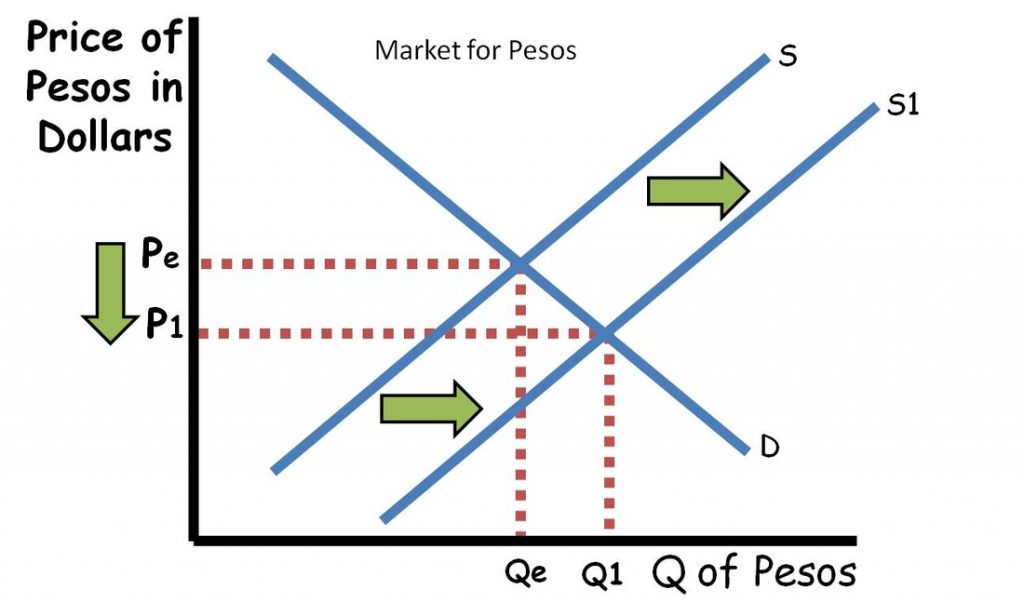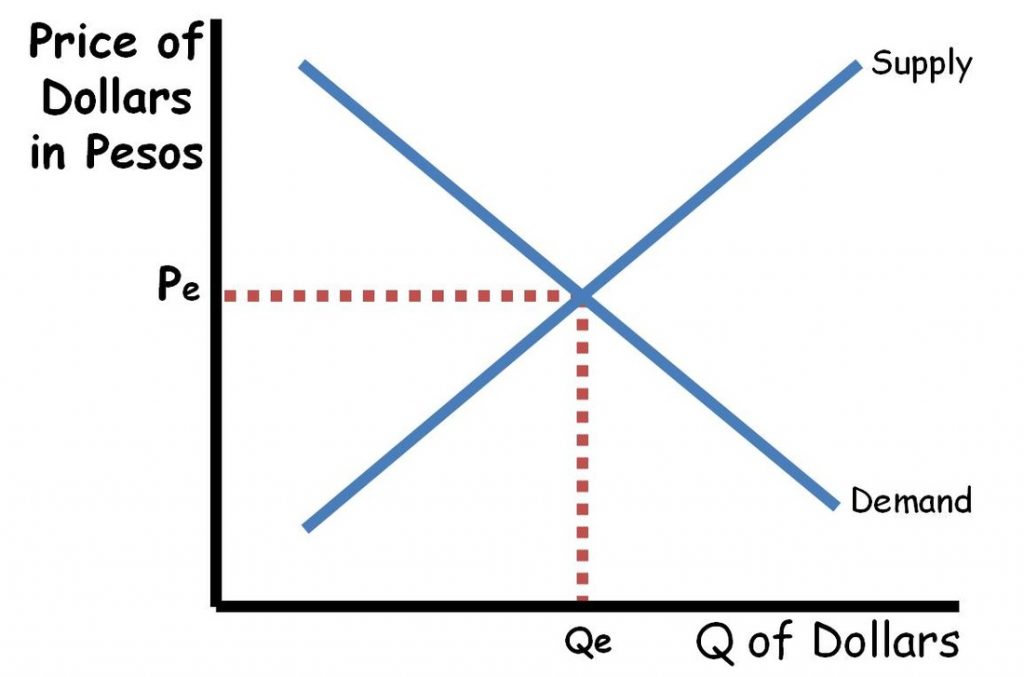Two example of foreign exchange market – Two examples of foreign exchange markets are the spot market and the forward market. The spot market is where currencies are traded for immediate delivery, while the forward market is where currencies are traded for delivery at a future date. These two markets play an important role in the global economy, facilitating the exchange of goods and services between countries.
The spot market is the most common type of foreign exchange market. In the spot market, currencies are traded for immediate delivery, typically within two business days. The spot market is used by businesses and individuals to exchange currencies for a variety of purposes, such as to pay for goods and services, to make investments, or to hedge against currency risk.
Foreign Exchange Market Definition: Two Example Of Foreign Exchange Market
The foreign exchange market, also known as forex or FX, is a global decentralized market where currencies are traded. It is the largest financial market in the world, with an average daily trading volume of over $5 trillion.
In the forex market, currencies are traded in pairs, such as the euro against the US dollar (EUR/USD) or the Japanese yen against the British pound (JPY/GBP). The exchange rate between two currencies is the price of one currency in terms of the other.
Browse the multiple elements of foreign exchange market deutsch to gain a more broad understanding.
Currency Pairs
The most commonly traded currency pairs in the forex market are:
- EUR/USD (euro/US dollar)
- USD/JPY (US dollar/Japanese yen)
- GBP/USD (British pound/US dollar)
- USD/CHF (US dollar/Swiss franc)
- AUD/USD (Australian dollar/US dollar)
Spot Market and Forward Market
The foreign exchange market (forex market) is a global, decentralized market for the trading of currencies. It is the largest and most liquid financial market in the world, with an average daily trading volume of over $5 trillion. The forex market is open 24 hours a day, five days a week, and is accessible to traders from all over the world.
There are two main types of forex markets: the spot market and the forward market.
Spot Market
The spot market is the market for the immediate exchange of currencies. When you trade in the spot market, you are buying or selling a currency at its current price. Spot market transactions are typically settled within two business days.
Forward Market
The forward market is the market for the future exchange of currencies. When you trade in the forward market, you are agreeing to buy or sell a currency at a specified price on a future date. Forward market transactions are typically used to hedge against the risk of currency fluctuations.
The spot market and the forward market are two different ways to trade currencies. The spot market is used for immediate transactions, while the forward market is used for future transactions. Both markets have their own advantages and disadvantages, and the best market for you will depend on your individual needs.
Currency Trading
Currency trading in the forex market involves buying and selling currencies to profit from changes in their exchange rates. Traders speculate on the future value of currencies and execute trades based on their predictions.
Currency trading strategies vary widely depending on the trader’s risk tolerance, time horizon, and market conditions. Some common strategies include:
Scalping
- Traders make frequent, short-term trades with small profit margins, aiming for high volume to accumulate profits.
- Scalpers rely on quick market fluctuations and technical analysis to identify entry and exit points.
Day Trading
- Traders buy and sell currencies within a single trading day, closing all positions before the market closes.
- Day traders analyze market trends, news events, and technical indicators to make informed trading decisions.
Swing Trading
- Traders hold positions for a few days to weeks, aiming to capture larger market movements.
- Swing traders use technical and fundamental analysis to identify potential trading opportunities.
Position Trading
- Traders maintain positions for extended periods, sometimes months or years, betting on long-term currency trends.
- Position traders rely on fundamental analysis and macroeconomic factors to make investment decisions.
Forex Market Participants
The foreign exchange market, or forex market, is a global marketplace where currencies are traded. Participants in this market include individuals, financial institutions, corporations, central banks, and governments.
Each participant has a unique role and motivation for engaging in the forex market. Understanding these roles and motivations is crucial for comprehending the dynamics of the forex market.
Individual Traders
Individual traders, also known as retail traders, participate in the forex market for various reasons. Some seek to speculate on currency movements and profit from exchange rate fluctuations. Others use the forex market to hedge against currency risk or to diversify their investment portfolio.
Financial Institutions
Financial institutions, such as banks, investment banks, and hedge funds, play a significant role in the forex market. They facilitate currency trading for their clients, provide liquidity to the market, and engage in proprietary trading activities.
Corporations
Corporations with international operations participate in the forex market to manage their foreign exchange exposure. They buy and sell currencies to facilitate cross-border transactions, pay overseas suppliers, and repatriate profits.
Central Banks
Central banks, such as the Federal Reserve and the European Central Bank, participate in the forex market to influence the value of their currencies. They buy and sell currencies to stabilize exchange rates, manage inflation, and support their monetary policy objectives.
Governments
Governments may intervene in the forex market to achieve specific economic or political goals. For example, they may buy or sell currencies to influence the value of their currency relative to others, or to support their trade policies.
Forex Market Risks
Trading in the foreign exchange market comes with inherent risks, primarily due to the volatility and unpredictability of currency values. Understanding and managing these risks is crucial for successful forex trading.
One significant risk is exchange rate fluctuations. Currency values can change rapidly due to various factors such as economic news, political events, and market sentiment. These fluctuations can lead to losses if traders do not accurately predict the direction of price movements.
Risk Management Strategies
Traders employ various risk management strategies to mitigate the risks associated with forex trading. These strategies include:
- Stop-loss orders: These orders automatically close a trade when the price reaches a predetermined level, limiting potential losses.
- Take-profit orders: Similar to stop-loss orders, these orders close a trade when the price reaches a desired profit target.
- Hedging: Involves taking opposite positions in two or more currency pairs to reduce exposure to a single currency’s fluctuations.
- Position sizing: Traders carefully determine the amount of capital they risk on each trade, based on their risk tolerance and account size.
Regulation and Oversight

The foreign exchange market is a vast and complex global marketplace, and it is essential that it is regulated to ensure stability and protect investors. There are a number of regulatory bodies around the world that oversee the forex market, including the Commodity Futures Trading Commission (CFTC) in the United States, the Financial Conduct Authority (FCA) in the United Kingdom, and the Swiss Financial Market Supervisory Authority (FINMA) in Switzerland.
Get the entire information you require about foreign exchange market grade 12 notes on this page.
Role of Regulatory Bodies
Regulatory bodies play a vital role in ensuring the stability of the forex market by:
- Setting and enforcing rules and regulations governing the conduct of forex market participants
- Monitoring the market for signs of manipulation or fraud
- Investigating and prosecuting violations of forex market regulations
Impact of Economic Factors
Economic factors play a crucial role in shaping the dynamics of the forex market. Changes in economic indicators, such as interest rates, inflation, and GDP growth, can have a significant impact on currency values.
Obtain a comprehensive document about the application of forex trading apk that is effective.
For instance, when a country raises interest rates, its currency tends to appreciate. This is because higher interest rates make it more attractive for investors to hold the currency, leading to increased demand and a higher exchange rate.
Inflation
Inflation, measured by the consumer price index (CPI), indicates the rate at which prices of goods and services are rising. High inflation can erode the value of a currency, making it less desirable to hold. As a result, countries with high inflation rates often experience currency depreciation.
GDP Growth
Gross domestic product (GDP) measures the total value of goods and services produced in a country. Strong economic growth can lead to increased demand for a country’s currency, as investors seek to participate in the growth potential. This can result in currency appreciation.
Technology in Forex Trading

Technology has revolutionized the forex trading industry, making it more accessible, efficient, and sophisticated.
Trading platforms, mobile apps, and algorithmic trading tools have transformed the way traders execute trades, analyze markets, and manage risk.
Trading Platforms
Forex trading platforms provide a comprehensive suite of tools and features that cater to the needs of both novice and experienced traders.
- Advanced charting capabilities allow traders to visualize market data and identify trading opportunities.
- Real-time market updates and news feeds keep traders informed about market movements and economic events.
- Order management tools enable traders to execute trades quickly and efficiently, with customizable order types and risk management features.
Mobile Trading
Mobile trading apps have made forex trading accessible anytime, anywhere.
- Traders can monitor market movements, place orders, and manage their accounts from their smartphones or tablets.
- Mobile apps often provide simplified interfaces and intuitive navigation, making them ideal for beginner traders.
Algorithmic Trading, Two example of foreign exchange market
Algorithmic trading, also known as automated trading, uses computer programs to execute trades based on predefined criteria.
- Algorithmic trading systems can analyze large amounts of market data and identify trading opportunities that might be missed by human traders.
- They can execute trades automatically, eliminating the need for manual intervention and reducing emotional bias.
Last Word

The forward market is a market where currencies are traded for delivery at a future date. The forward market is used by businesses and individuals to hedge against currency risk. By entering into a forward contract, a business or individual can lock in the exchange rate for a future date, which can protect them from adverse currency movements.
